![]()
“We travel to Dhaka, in Bangladesh for a celebration of South East Asian photography thanks to a festival called Chobi Mela, on its fourth edition so far. Their theme this year is ‘boundaries’: ideas, aspects, images that divide peoples and cultures. Perfect backdrop for the violence in the country ahead of forthcoming elections…” http://www.bbc.co.uk/worldservice/programmes/the_ticket.shtml. They did a hatchet job on Anita’s interviews, but at least the BEEB did give coverage to Chobi Mela IV.
Besides Cristobal (asleep on the rickshaw) and Norman, all the others have gone back.
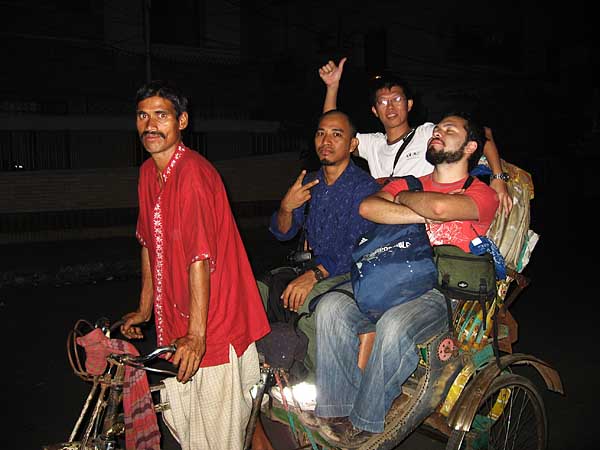
Richard, Wubin and Cristobal, testing out environmentally friendly modes of transport.
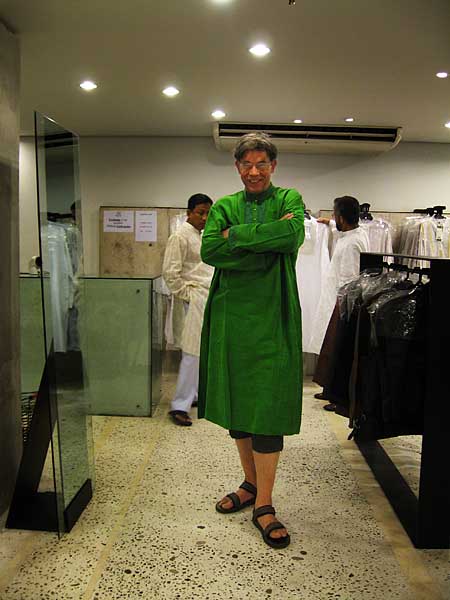
Rupert claims his neighbours need sunglasses to cope with his glistening green punjabi from Dhanmondi Aarong.
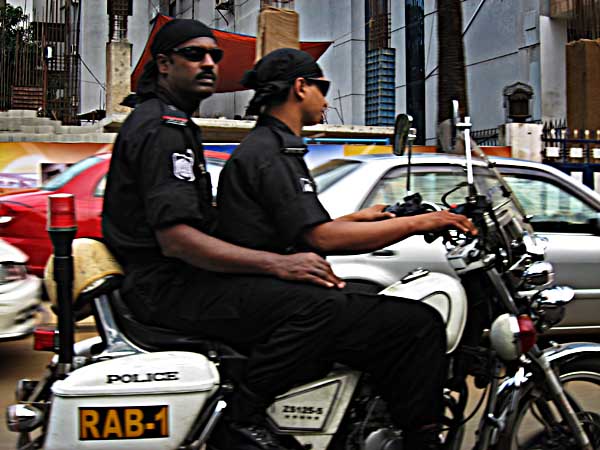
The Rapid Action Battalion (RAB) motorbike cruised slowly past Drik in the morning. Earlier I’d seen them cruise in Gulshan and Baridhara. It was like a scene from Easy Rider, though the ‘crossfire’ victims might not think so. I’ve never seen them in the troubled areas of Paltan, or Muktangon, or anywhere there are clashes between the public and the police. The RAB seem to have different priorities. For the moment at least, the elite force seems only concerned with protecting the elite.
Meanwhile, a Chief Election Commissioner (CEC) takes a strange and undefined ‘leave’, with veiled threats of “I shall return”, and the fighting gives way to election frenzy.
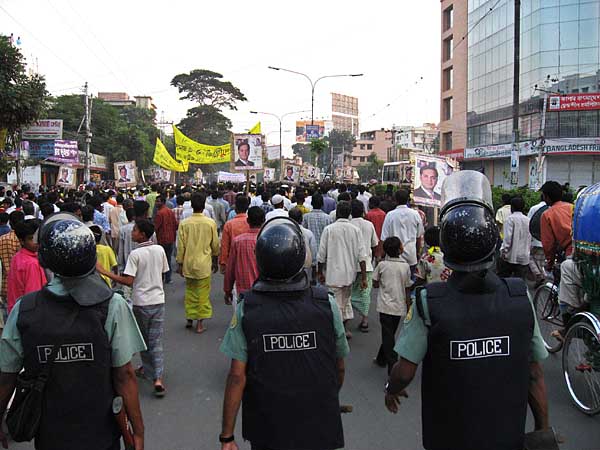
The Police in a different role
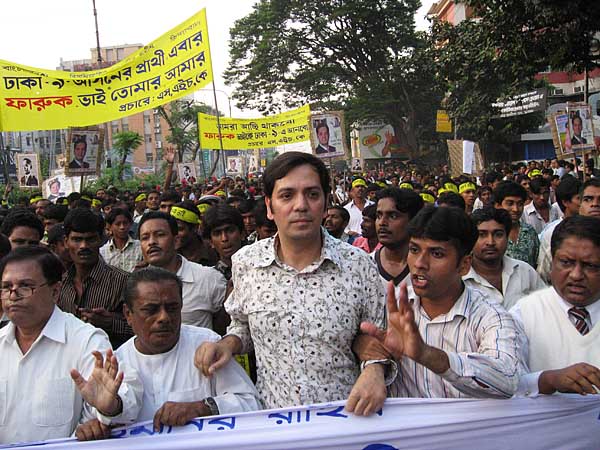
The campaigner, a new kid on the block

Hired supporters, a new form of employment
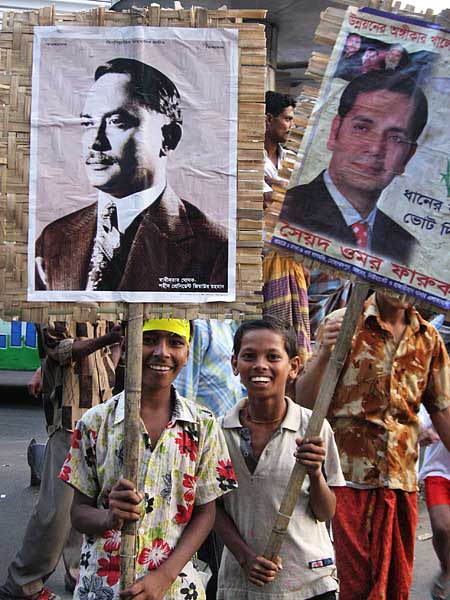
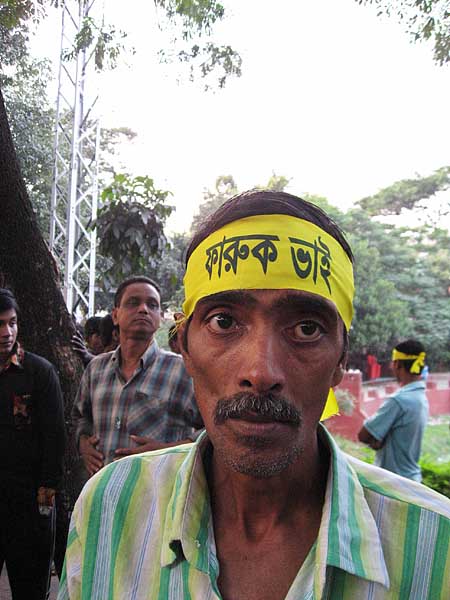
Employment for all

And the inevitable traffic jams
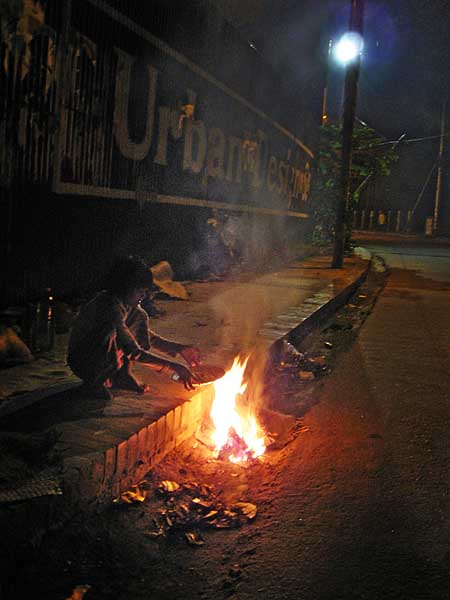
For those trying to avoid the winter chill, the priorities are somewhat different. A girl cooks dinner at Russel Square. Earlier the burning cars provided the flames.
Tag: Elections
Dhaka Burns
![]()
Well I’m finally stumped for words. A party affiliated president, now
has the triple roles of president, head of the military and head of
the ‘neutral’ caretaker government. While rumours of a military
takeover abound, and the prime minister’s son threatens that they will
not go to the streets ’empty handed’, the news that the leader of the
opposition has not threatened immediate protests, but has rather opted
to see how the new head of the caretaker government conducts himself,
is a healthy sign. Too many lives have already been lost.
A lot of changes need to take place to erase the mistrust created. A
genuinely non partisan group of advisers need to be selected, the
election commission and the voters list, both clearly not neutral,
need to be changed, and he has to clearly demonstrate that he is no
longer a puppet. Unlikely based on his track record, but one can hope.
Given the current mood, another sham election will surely light the
fuse.
Shahidul Alam
29th October. Dhaka
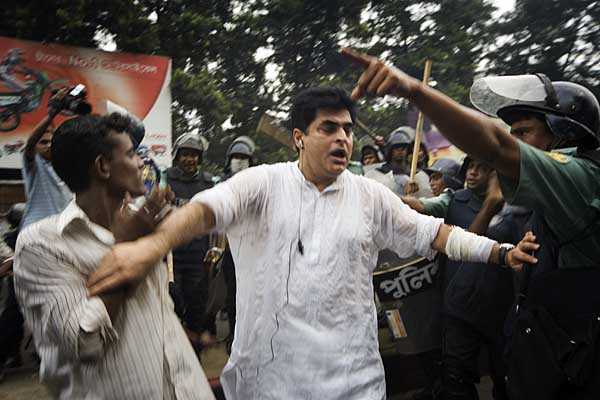
Clashes between opposition and Jamaat due to demand for neutral head of caretaker government. (upload incomplete)
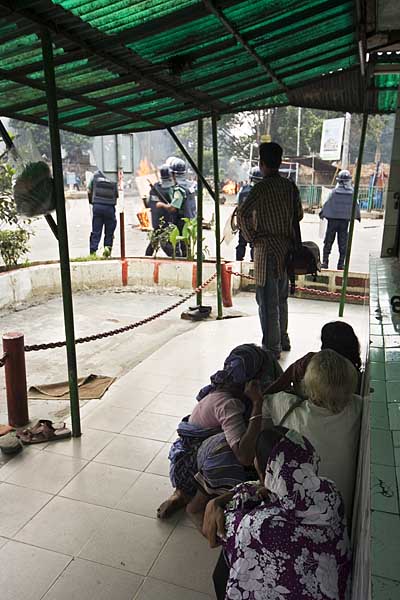
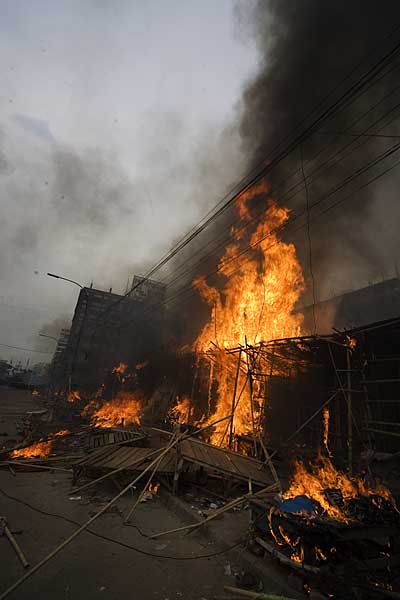
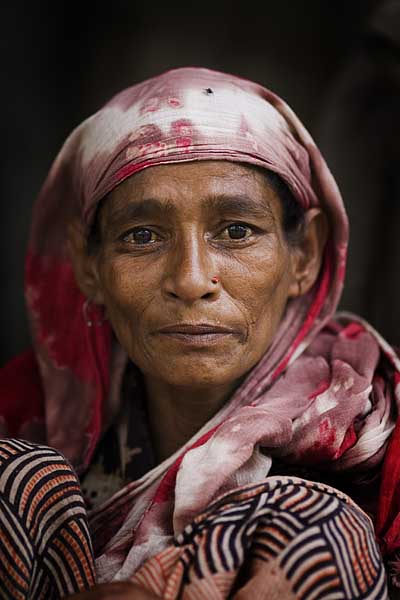
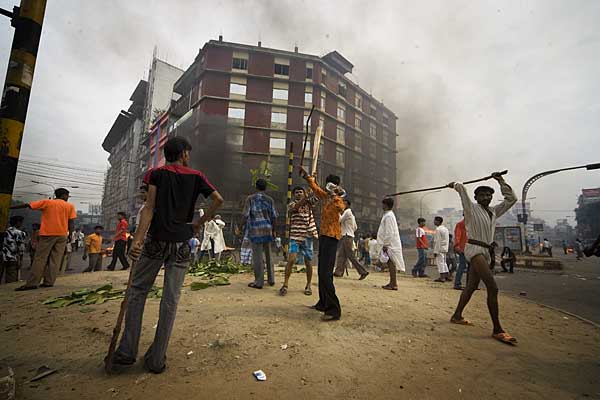
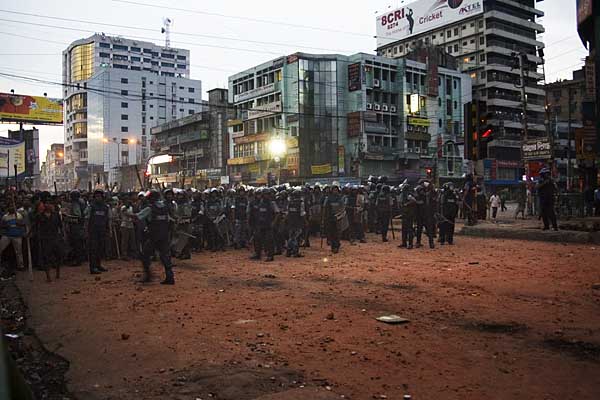
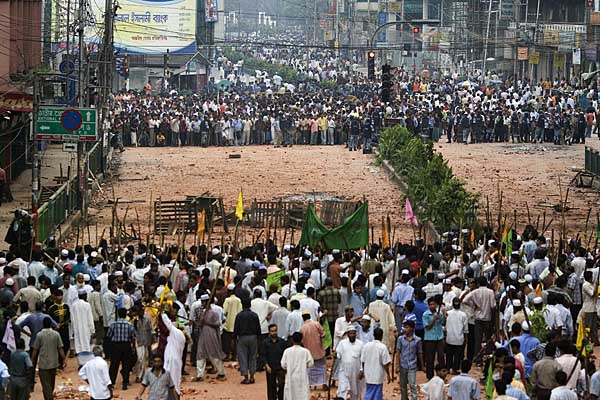
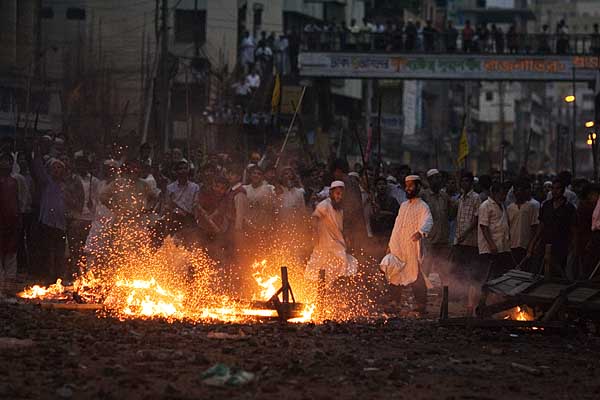
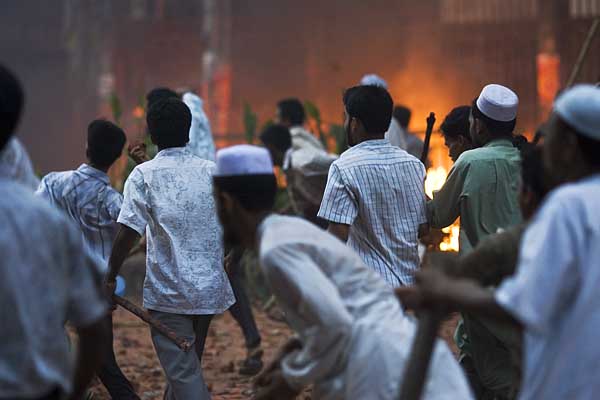
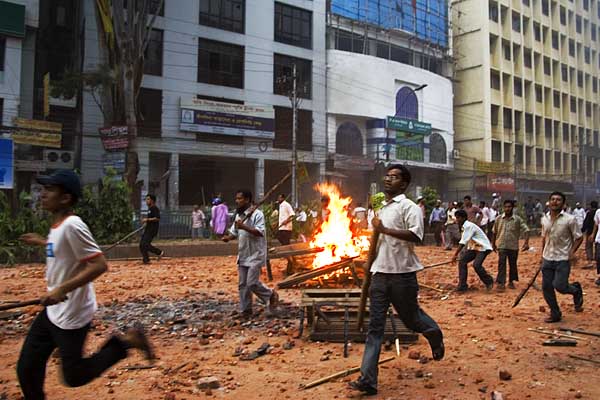
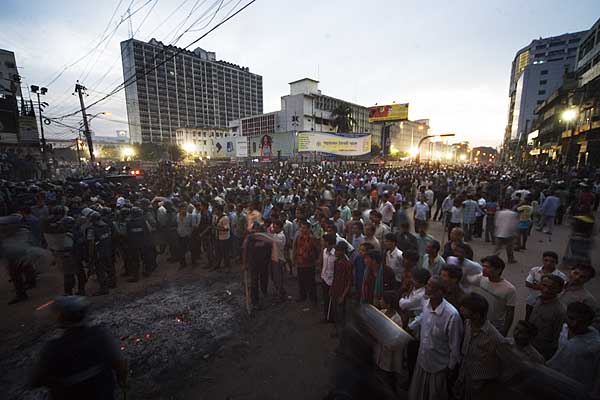
Above photographs taken on 28th October 2006 by Shahidul Alam.
And today 29th October 2006, a party affiliated president, makes himself president, head of military and head of ‘neutral’ caretaker government. Today’s photographs taken by Shehab Uddin. No unauthorised copying of any kind. To publish these or high res images, contact library@drik.net. More pictures and text to follow.
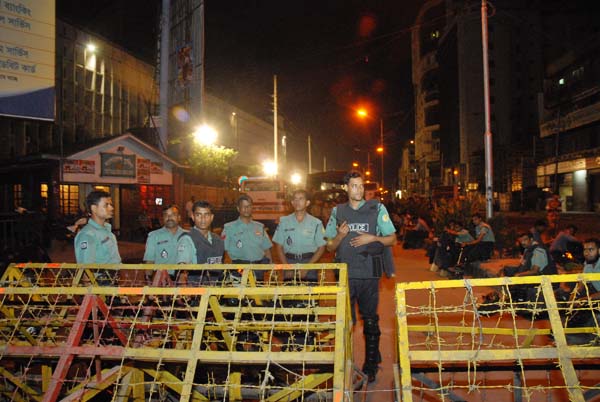
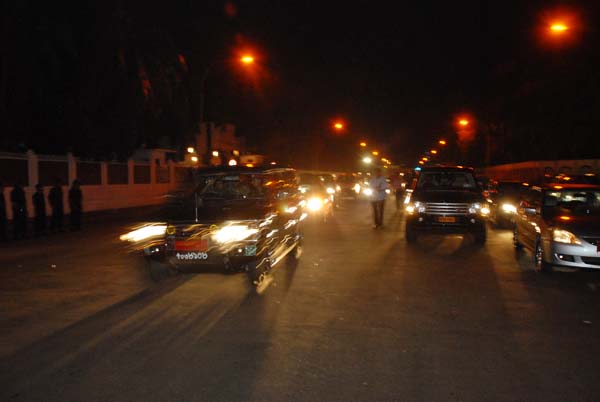
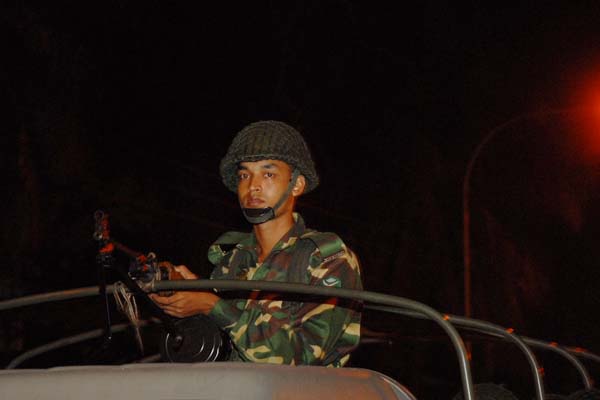
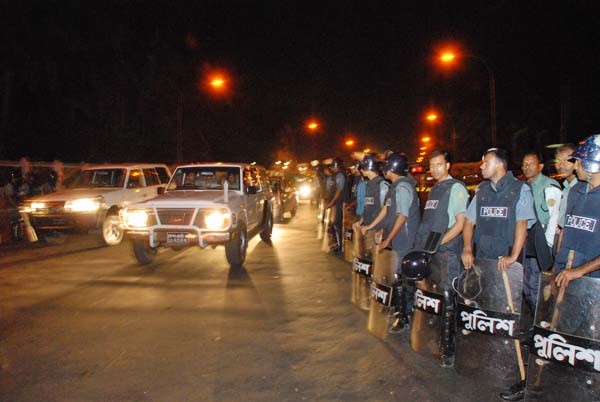
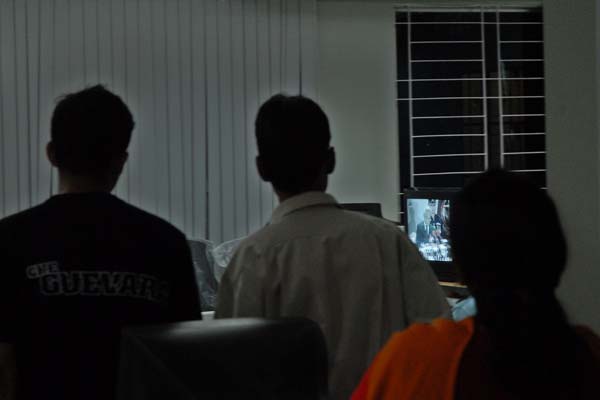
A State of Danger
![]()
The material that follows has been provided by the?New Internationalist

A STATE OF DANGER
This is?Shahidul Alam’s inside story, in words and pictures, of the intense struggle against repression which has been raging in Bangladesh, unnoticed by the Western media. Resistance work there is dangerous – photographers and journalists are regularly attacked and arrested.

In the beginning there was light. One of the climactic moments from Begum Khaleda Zia’s victorious election campaign in 1991. Hope burgeons as Bangladesh launches into a rare free and fair election. The latest in a series of military-backed dictators, Hussain Mohammad Ershad, had finally been ousted two months before following an intensive three-year campaign for democracy.

But the optimism is short-lived. Demonstrators take to the streets when the Government allies with the fundamentalist Jamaat-e-Islam, whose leaders aided the Pakistani Army’s genocide of Bangladeshis in 1971. Under the watchful eye of authority, children of that war’s martyrs demand the trial of the war criminals.

Women feel they have most to lose if the Islamic fundamentalists gain ground. On International Women’s Day in 1994 Shamima Nazneed enacts a play by Tagore (Stri’r Potro, ‘The Wife’s Letter’) which shows the oppressive influence of the family.

The Government becomes increasingly repressive and starts to rig by-elections, leading all opposition parties to resign from Parliament. A general election is called and there is a brutal clampdown on dissent. This student is arrested on 31 January 1996 in a police swoop on a mainly Hindu hall of Dhaka University – he screams out to friends from the prison van.

Resistance hits the streets.

The opposition boycott of the election is complete: polling stations stand idle. Yet the Government reports a huge turnout of voters and a landslide victory. The contrast with the last election is painful as heavy security cordons guard Khaleda Zia while she addresses her followers. She is just visible over their shoulders in the centre, aloof and distant heir to an autocratic tradition.
